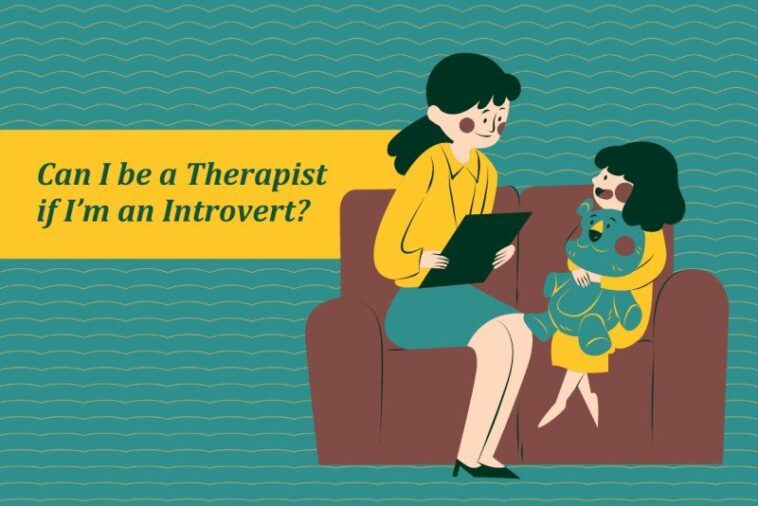The chance to make a positive difference in people’s lives makes working as a therapist an appealing profession. With so many options, you can find a therapist who specialises in whatever aspect of mental health most interests you. To help you narrow down your options, we’ve compiled a brief overview of some of the most prevalent therapist specialisations.
This page provides an overview of 18 distinct therapeutic specialisations.
Types of therapists
Here is a look at the most common types of therapists:
1. Marriage and family counselor
Behaviours of individuals in a marriage or family are the primary emphasis of this sort of counsellor. Furthermore, they look at how family members interact with one another. Marriage and family therapists frequently split their time between working with each patient individually and with the entire family unit. Family counsellors, marriage counsellors, and couples’ counsellors are all names for the same professional.
2. Addiction therapist
A therapist who specialises in helping people overcome substance misuse issues is called a “addiction therapist.” It’s possible that they aid patients in working through the kinds of emotional baggage that can contribute to an addiction. Addiction therapists may choose to work one-on-one with clients, or they may opt to facilitate group sessions where multiple people with similar experiences can learn from and support one another.

3. Behavioral therapist
This kind of therapist helps those who are having difficulties due to a mental illness. People with ADD or ADHD, for instance, may benefit from a behavioural therapist’s assistance in learning effective coping mechanisms that may be used in their daily lives.
4. Divorce therapist
Divorce therapists are trained to help married people who are having difficulties and may be on the verge of splitting up. The therapist will typically spend time with both partners separately and then work with them together to resolve their issues. Divorce counselling often addresses issues like communication breakdowns, infidelity, unfairness, and abuse.
5. Child therapist
This therapist has completed further education and training specifically geared towards the treatment of emotional, behavioural, and mental issues in children and adolescents under the age of seventeen. They could be employed by the government, by schools, or by healthcare facilities.
6. Clinical therapist
Clinical therapists, like behavioural therapists, assist patients in resolving problems stemming from mental illness. Clinical therapists, on the other hand, do more than merely help their patients deal with their difficulties; they also address the root causes of those problems.
7. Cognitive therapist

Cognitive therapists provide brief therapy to assist patients alter dysfunctional thought habits and adopt healthier approaches to problem solving. The goal of cognitive therapy is to help patients improve their quality of life by identifying and replacing unhealthy thought patterns with more positive ones.
8. Cognitive-behavioral therapist
Cognitive-behavioral therapists (CBTs) treat people with issues like addiction, depression, and eating disorders through a combination of behavioural and psychotherapy methods.
9. Eating disorder therapist
The treatment of eating disorders requires the expertise of a therapist who focuses on this area. Depending on the type of eating disorder and the patient’s symptoms, therapists may recommend a combination of nutrition instruction, psychotherapy, and medication.
Also Read: Centre cuts price of subsidised tomato to Rs 70 per kg.
10. Exercise therapist
Physical therapists who specialise in exercise help those who have suffered from injuries or illnesses achieve their previous level of functioning. Clients who are having physical pain are given an exercise plan to follow. In the end, they want to see their patients improve their physical, mental, and emotional health so that they can move around more freely, have less pain, become more self-reliant, and enjoy a higher quality of life.
11. Youth therapists
Physical therapists who specialise in exercise help those who have suffered from injuries or illnesses achieve their previous level of functioning. Clients who are having physical pain are given an exercise plan to follow. In the end, they want to see their patients improve their physical, mental, and emotional health so that they can move around more freely, have less pain, become more self-reliant, and enjoy a higher quality of life.
12. Social work therapist
This therapist specialises on speaking up for underrepresented communities. For instance, they might aid a person with a developmental disability in obtaining the necessary supports for self-sufficiency. Their ultimate objective is to ensure that their clients have what they need to lead fulfilling, healthy lives.
13. School therapist
The role of a school therapist is similar to that of a school counsellor, in that both work with kids to help them grow personally and academically. Counsellors in schools assist students with their social and emotional development and encourage them to pursue their passions.
14. Trauma therapist
A trauma therapist, also known as a trauma counsellor, is a mental health professional with advanced education and clinical experience working with victims of trauma. Therapists that specialise in trauma work with clients to help them understand and manage the range of emotions brought on by traumatic experiences. Eye movement desensitisation and reprocessing (EMDR) is one of many strategies trauma therapists may employ over the course of several months or more.
15. Nutritional therapist
This therapist, also known as a nutritional counsellor, helps patients enhance their health and well-being via changes to their food. Chronically ill or diseased patients make up a large portion of a nutritional therapist’s clientele.
16. Social therapist
Mental health practitioners known as “social therapists” focus on assisting people with a wide range of emotional difficulties, including but not limited to: depression, anxiety, relationship problems, stress, loss, domestic strife, and trauma. They help their patients learn how to better manage the effects of their social environments.
17. Dialectical behavior therapist
Patients with significant mental health issues, such as borderline personality disorder (BPD), are best served by a therapist trained in dialectical behaviour therapy (DBT). Since BPD is so uncommon, therapists who focus on it are a rarer breed than the others listed above.
18. Psychodynamic therapist
A psychodynamic therapist, often known as a “psychoanalyst,” is a type of mental health professional who focuses on uncovering the unconscious motivations and processes at play within a patient’s mind. This type of in-depth psychotherapy is used by mental health experts to investigate the origins of a patient’s distress. The therapist guides the client through an introspective process of self-reflection and problem-relationship identification.






